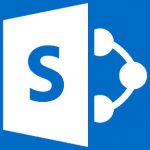Create .Net application with RabbitMQ on your local machine

If you want to write an application which uses RabbitMQ, I advise you to use docker image of Rabbit. It's lightweight and can be easily executed.
Download and start docker image with a powershell command:
docker run -it --rm --name rabbitmq -p 5672:5672 -p 15672:15672 rabbitmq:3.12-management
Of course, docker must be installed on the machine 🙂
Administration url is http://localhost:15672/#/, default login-password are guest / guest. To set different credentials you can start docker with another command:
docker run -d --hostname my-rabbit --name some-rabbit -e RABBITMQ_DEFAULT_USER=user -e RABBITMQ_DEFAULT_PASS=password rabbitmq:3-management

Next step is to create console application in .Net 6 and add the package RabbitMQ.Client:
NuGet\Install-Package RabbitMQ.Client -Version 6.5.0
Simple example for the listener of RabbitMQ is here
using RabbitMQ.Client;
using RabbitMQ.Client.Events;
.......
public void FirstAttempt()
{
var factory = new ConnectionFactory
{
HostName = "localhost"
};
var connection = factory.CreateConnection();
Console.OutputEncoding = Encoding.UTF8;
//Here we create channel with session and model
using
var channel = connection.CreateModel();
//declare the queue after mentioning name and a few property related to that
channel.QueueDeclare("product", exclusive: false);
//Set Event object which listen message from chanel which is sent by producer
var consumer = new EventingBasicConsumer(channel);
consumer.Received += (model, eventArgs) => {
var body = eventArgs.Body.ToArray();
var message = Encoding.UTF8.GetString(body);
Console.WriteLine($"Product message received: {message}");
};
//read the message
channel.BasicConsume(queue: "product", autoAck: true, consumer: consumer);
Console.ReadKey();
}
 A Hidden Visual Studio Trick: Execute Selected Code with double Ctrl+E
A Hidden Visual Studio Trick: Execute Selected Code with double Ctrl+E What do to with Zone.Identifier files after importing a WSL machine and copying data
What do to with Zone.Identifier files after importing a WSL machine and copying data Support for SharePoint Server 2019 ends on Tuesday, July 14, 2026
Support for SharePoint Server 2019 ends on Tuesday, July 14, 2026